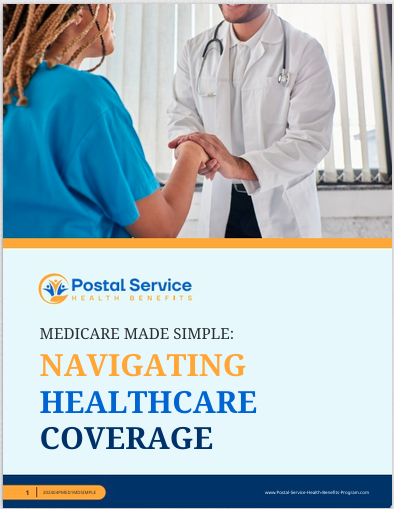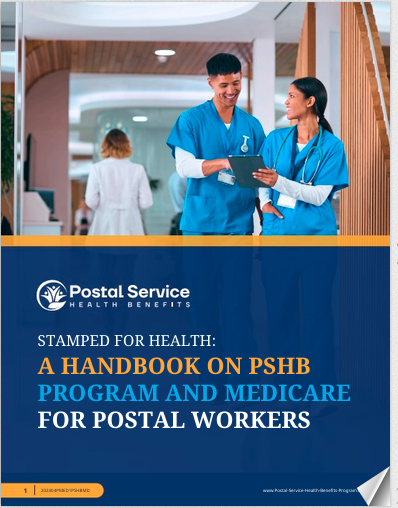Key Takeaways
-
Many postal retirees and employees overestimate what Medicare covers in 2025, especially regarding long-term care, dental, and vision services.
-
Coordinating your PSHB plan with Medicare remains essential to avoid unexpected out-of-pocket costs and ensure smoother coverage transitions.
Why Understanding Medicare Coverage in 2025 Matters More Than Ever
When you reach Medicare eligibility, it can feel like a relief. However, assuming that Medicare alone will cover all your healthcare needs is a mistake. In 2025, gaps in coverage remain significant. Even though you may also have Postal Service Health Benefits (PSHB) coverage, knowing exactly what Medicare does and does not cover helps you avoid financial surprises.
What Medicare Part A Covers—And Where It Stops
Medicare Part A covers hospital-related services. In 2025, it includes:
-
Inpatient hospital stays after you meet the $1,676 deductible per benefit period.
-
Skilled nursing facility care after a qualified hospital stay, covering up to 20 days in full, then requiring coinsurance.
-
Hospice care for terminal illnesses.
-
Limited home health services under specific conditions.
Important Limitations:
-
Skilled nursing facility coverage beyond 20 days requires a daily coinsurance payment.
-
Long-term custodial care (such as help with bathing or eating) is not covered.
-
Inpatient mental health services are capped at 190 days lifetime if provided in a psychiatric hospital.
Medicare Part B’s Promise and Pitfalls
Medicare Part B handles outpatient care. In 2025, it covers:
-
Doctor visits, outpatient surgeries, and preventive screenings.
-
Durable medical equipment (like walkers or wheelchairs).
-
Ambulance services.
However, you must:
-
Pay a $185 monthly premium.
-
Meet a $257 annual deductible.
-
Cover 20% of most services after meeting the deductible.
Common Misunderstandings:
-
Part B does not cover routine dental, hearing aids, or eyeglasses.
-
Cosmetic surgeries are excluded unless medically necessary.
-
Alternative therapies like acupuncture (beyond limited uses) are generally not included.
Where Part D Prescription Drug Coverage Falls Short
Medicare Part D provides outpatient prescription drug coverage. As of 2025:
-
Plans feature a $590 maximum deductible.
-
There is a $2,000 out-of-pocket cap for the year, a major improvement compared to prior years.
But you should know:
-
Not all medications are covered; each plan uses a formulary.
-
Drugs outside the formulary require appeals or full out-of-pocket payment.
-
Certain specialty drugs still involve significant coinsurance even after deductible and initial coverage stages.
Services Medicare Rarely (or Never) Covers
It is crucial you understand the services Medicare does not routinely cover, including:
-
Routine dental care, including cleanings, fillings, and dentures.
-
Routine vision exams and eyeglasses (except after cataract surgery).
-
Hearing exams and hearing aids.
-
Long-term custodial care in nursing homes.
-
Cosmetic procedures.
-
Overseas healthcare unless under very specific limited situations.
This is where your PSHB plan can provide additional support—but only if you actively coordinate your benefits.
Why Medicare Alone Is Not Enough for Postal Retirees
Even with Medicare Parts A, B, and D, there are still coverage gaps. These gaps can lead to:
-
Unexpected hospital bills if services are considered out-of-network.
-
Significant dental, vision, and hearing expenses.
-
High out-of-pocket drug costs for uncovered or non-formulary medications.
-
Costs associated with skilled nursing beyond covered days.
Fortunately, PSHB plans are designed to work alongside Medicare to fill many of these gaps. For example, your PSHB plan may cover additional days in skilled nursing, reimburse some Medicare Part B premium costs, or provide benefits Medicare does not offer.
How PSHB and Medicare Coordinate Benefits
When you have both Medicare and a PSHB plan in 2025:
-
Medicare typically pays first (primary payer).
-
Your PSHB plan pays second (secondary payer).
This coordination can:
-
Eliminate or reduce coinsurance.
-
Cover services Medicare misses.
-
Lower prescription costs by supplementing Part D.
However, you must enroll in Medicare Part B to maximize these benefits. Without Part B, your PSHB plan may act as the sole payer and will not reduce your out-of-pocket costs the same way.
Important Deadlines and Enrollment Periods in 2025
-
Initial Enrollment Period (IEP): 7 months around your 65th birthday.
-
General Enrollment Period (GEP): January 1 to March 31 annually (coverage starts July 1).
-
Open Enrollment for PSHB: November to December.
-
Special Enrollment Periods (SEP): Triggered by qualifying events like losing employer coverage.
Missing these periods can mean:
-
Late enrollment penalties.
-
Delayed coverage.
-
Gaps in healthcare protection.
If you are a Postal retiree already eligible for Medicare and newly under the PSHB program in 2025, it is critical to review your enrollment status.
How Much You Might Still Pay in 2025
Even with both Medicare and PSHB coverage:
-
Hospital stays may still require a copayment.
-
Certain prescription drugs could have a cost-sharing amount until the $2,000 out-of-pocket cap.
-
Dental, hearing, and vision services may require separate coverage or additional premiums.
-
Medicare Part B premiums and potential Income-Related Monthly Adjustment Amounts (IRMAA) apply if your income exceeds thresholds.
Top Mistakes Postal Retirees Make About Medicare in 2025
-
Assuming Medicare covers long-term nursing home care: It doesn’t. Medicare only covers limited skilled nursing after hospitalization.
-
Believing Medicare covers everything at 100%: You still have deductibles, premiums, copays, and coinsurance.
-
Skipping Medicare Part B enrollment: Without it, your PSHB plan may not cover you as fully.
-
Thinking prescription drugs are automatically included: You must enroll separately in a Part D plan or a plan that includes Part D benefits.
-
Ignoring dental, vision, and hearing needs: You need to seek separate solutions if these are priorities.
Smart Steps to Protect Yourself in 2025
To avoid unexpected healthcare expenses:
-
Enroll in Medicare Parts A and B once eligible.
-
Compare PSHB plans carefully during Open Season.
-
Verify that your PSHB plan offers additional benefits you need, such as dental or hearing services.
-
Budget for the Part B premium and any potential IRMAA surcharges.
-
Understand your drug coverage thoroughly and check the plan formulary.
Being proactive ensures you get the most value from both Medicare and PSHB coverage.
Final Thoughts on Protecting Your Coverage and Budget
Understanding what Medicare truly covers in 2025—and what it does not—is critical for postal retirees and workers. Don’t rely on assumptions or outdated information. The partnership between Medicare and your PSHB plan is powerful but only if you know how to use it properly. Take time during Open Season to review your plan options carefully and ensure you’re enrolled in the necessary Medicare parts.
If you need help understanding your Medicare and PSHB options, reach out to a licensed insurance agent listed on this website. They can offer personalized guidance tailored to your needs.







